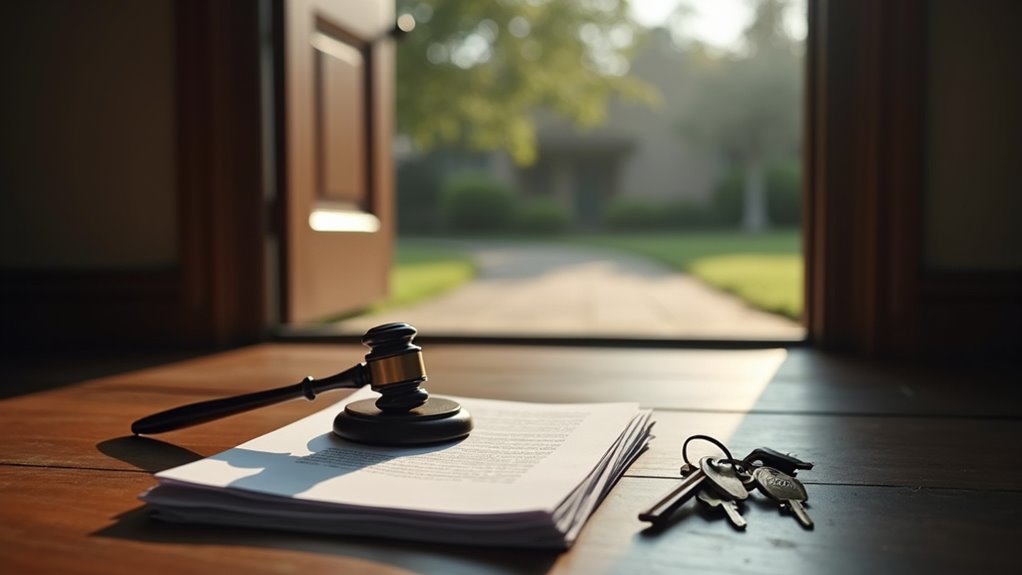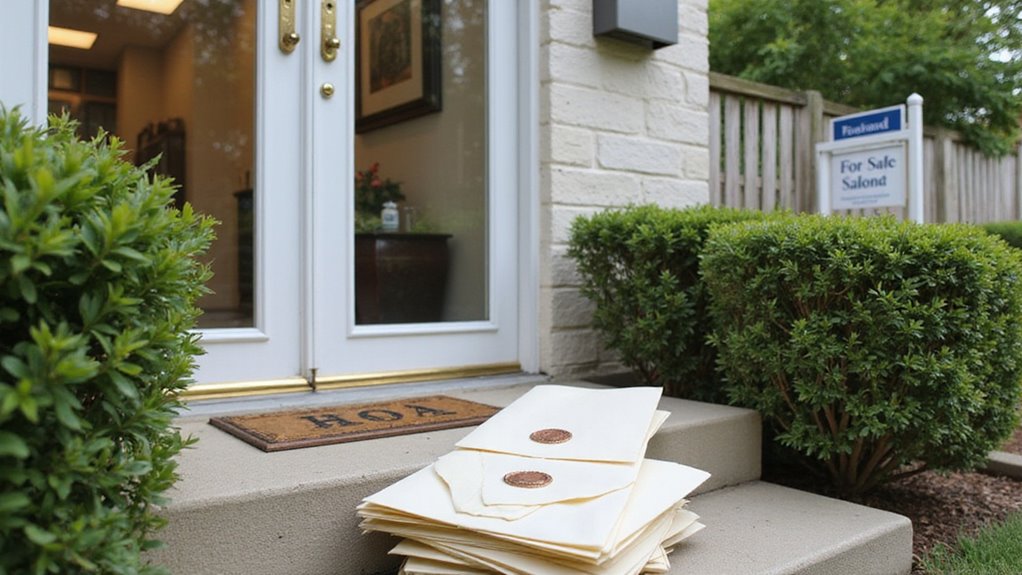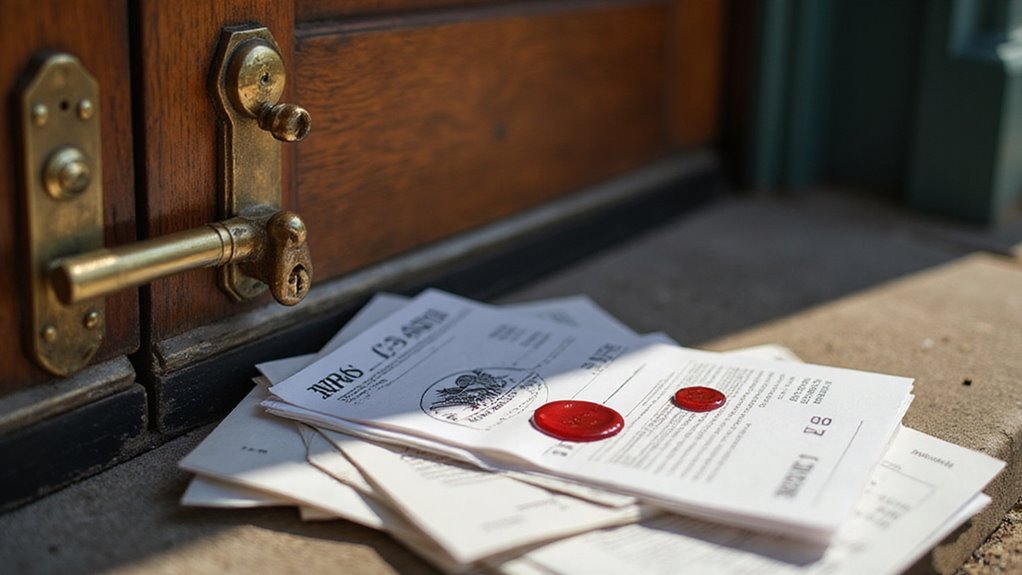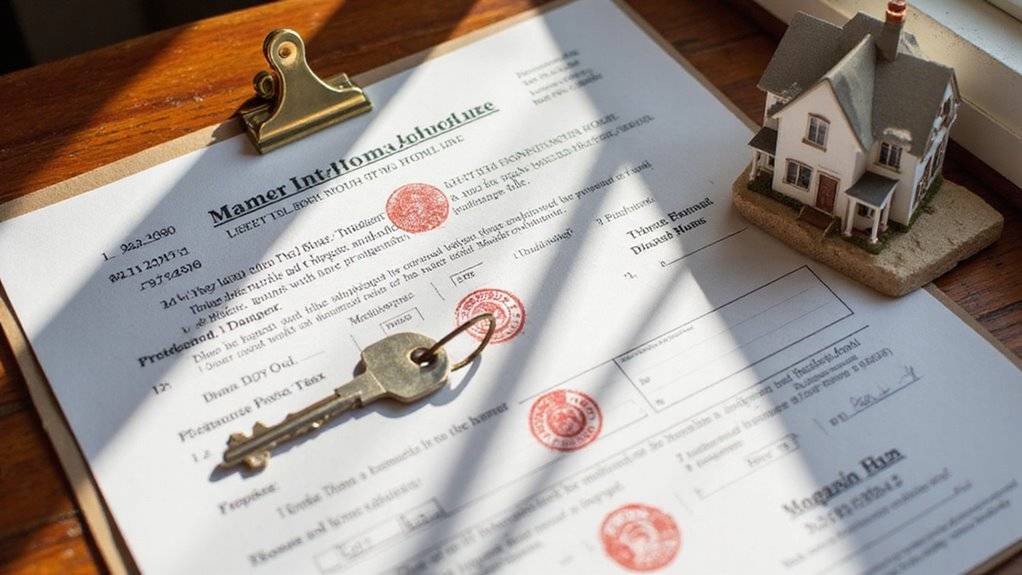Selling your home can be stressful, especially if you do not understand how different liens can affect the process. Liens are legal claims against your property. They can make it harder to transfer ownership smoothly.
These liens can cause delays, reduce your profit, or even stop the sale altogether. Many sellers do not realize their home has a lien until it is too late.
This can lead to last-minute surprises and extra costs. The types of liens that affect a home sale include tax liens, mortgages, contractor liens, and court judgments.
By learning about these liens, you can avoid most problems. You will be better prepared for a successful sale. This blog will explain the main types of liens and show you how to handle them before selling your home.
Key Takeaways
- Tax liens from unpaid property or federal taxes must be resolved before a home sale can close.
- Mortgage liens are lender claims that require full payoff for the sale to proceed.
- Mechanic’s liens from unpaid contractors or suppliers can delay or block property transfers.
- Judgment liens from court-awarded debts cloud the title and restrict selling or refinancing.
- Municipal liens for unpaid utility bills, code violations, or special assessments must be cleared for a clear title transfer.
Understanding What a Lien Is

A lien is a legal claim on your property by someone you owe money to. Creditors use liens to make sure they get paid. If you do not pay your debt, the creditor can take steps to sell your property.
Lien priority is important because it decides who gets paid first if the property is sold. Usually, the first lien recorded has the highest priority. Later liens only get paid after earlier ones are satisfied. In some cases, multiple liens on a property can complicate the selling process and affect how much a seller receives from the sale.
If you want to sell your home, you must clear any liens on it. Unpaid liens make it hard to transfer ownership to a new buyer. Clearing liens helps you sell your property without problems.
When selling a home with liens, working with local St. Louis experts can make the process easier and help ensure all liens are handled properly.
Tax Liens
Unpaid taxes can cause the government to place a tax lien on your property. This means you cannot sell your home with a clear title. The lien must be paid off before transferring ownership.
A tax lien makes your property less valuable to buyers. Most buyers will want the lien resolved before closing the sale. If you do not pay the lien, you could lose your home through foreclosure. If more than one person is on the deed, all co-owners must usually agree to resolve the lien before the property can be sold.
It is important to address any tax liens early if you plan to sell. Resolving liens helps make the sales process smoother and protects your ownership rights. If you act quickly, you can avoid bigger problems later. If you are dealing with tax liens, you should also consider how capital gains tax might impact the sale of your home, especially if you meet the residency and profit requirements for exclusions.
Mortgage Liens

A mortgage lien is a legal claim by a lender on your home as security for a loan. This lien is recorded with your local county office. If you stop making payments, the lender can take your home through foreclosure.
Mortgage liens usually have first priority over other claims. This means they must be paid off first if the home is sold. If there are other liens, they are paid after the mortgage.
To sell your home, you must pay off the mortgage in full. The lender then gives you a lien release, proving the debt is settled. Without this release, the home’s title is not clear and selling can be delayed. If you work with cash home buyers, they can often coordinate with your lender and title company to make sure the mortgage lien is paid off quickly and smoothly as part of the closing process.
If you’re looking to sell your home quickly and want to avoid real estate agent fees, working with a local buyer can help ensure your mortgage lien is handled smoothly as part of the sale.
Mechanic’s Liens
You’ll encounter mechanic’s liens when contractors or suppliers aren’t paid for work or materials provided to your property. These liens can complicate title transfers and disrupt refinancing, so it’s crucial you address the underlying payment disputes quickly.
You can resolve a mechanic’s lien through direct settlement, lien release, or, if necessary, legal action to clear your property’s title. If your property is being purchased through a land contract, you should carefully review contract terms to ensure there are no restrictions or additional obligations related to resolving mechanic’s liens before selling.
Sellers facing financial constraints may find it even more important to resolve these liens promptly, as unresolved issues can delay or jeopardize an as-is sale.
Common Mechanic’s Lien Triggers
A mechanic’s lien happens when property owners do not pay for work or materials on their property. This lien can make it hard to sell the home because it creates a legal claim against the property. If you want a clear property title, you must settle these liens.
Common triggers for mechanic’s liens include unpaid labor, unpaid materials, contract disputes, and payment delays. If a worker or supplier does not get paid, they can file a lien. Even if you paid the main contractor, unpaid subcontractors or suppliers can still file liens.
Unpaid labor means workers did not get their wages, which clouds your property title. Unpaid materials happen when suppliers are not paid for goods, which encumbers your property. Contract disputes or payment delays can also lead to legal complications and, in some cases, foreclosure.
Resolving Mechanic’s Liens
A mechanic’s lien can be removed by following several clear steps. You must resolve it to regain a clear property title. This action is important for selling or refinancing your home.
First, check if the lien is valid by reviewing the details. The claim must match the work done and any contracts you signed. If any information does not match, you may have grounds to dispute it.
You can pay the debt owed to the contractor to settle the lien. If payment is made, always request a lien release document. This document should be filed with your local records office.
If you think the lien is unfair, you have the right to contest it in court. Courts may remove liens if mistakes are found or work was incomplete. Challenging the lien may help if you do not agree with the claim.
Mechanic’s liens can sometimes be more important than older mortgages. You should resolve these liens quickly to avoid foreclosure risks. Timely action will also make any property sale process smoother.
Judgment Liens

When a court awards a creditor a monetary judgment against you, that creditor can record a judgment lien, which automatically attaches to your property. This encumbrance clouds your title, restricting your ability to refinance or sell the home until the debt is satisfied.
You’ll need to pay the judgment or negotiate a settlement to clear the lien and restore marketable title. If you’re dealing with a judgment lien, working with a local home buyer who can offer a fair cash price and handle closing details may help you sell your house quickly, even with this type of encumbrance.
One advantage of working with a cash buyer is that you can often avoid realtor fees and close the sale on your schedule, making the process less stressful and more straightforward.
How Judgment Liens Attach
A judgment lien attaches to your property after a court orders you to pay money and the creditor records the judgment. The creditor must record the judgment with the county where your real estate is located. This action creates a legal claim against your property.
The lien applies to any real estate you own in that county. If you try to sell or refinance, the lien can block the process. You may have to pay off the debt before completing the transaction.
Lien priority decides which debts get paid first if the property is sold. Existing liens, like mortgages, usually get paid before judgment liens. If there are not enough funds, some creditors may not get paid.
If your property has enough value, the lien may force you to pay the judgment from the sale. Judgment liens can limit your financial options. These liens can also affect negotiations when selling your property.
Impact on Property Title
A judgment lien is placed on your property’s title and becomes a public record. This makes it harder to sell or refinance your home. If you want to transfer ownership, you must usually resolve the lien first.
Buyers and lenders may see the lien as a warning sign. They might avoid your property or offer less money. The lien can lower your home’s value.
Title insurance companies may refuse coverage if the lien is not cleared. If you want insurance, you must pay off the debt. Otherwise, closing the sale could become impossible.
If you sell your home with a lien, the lien amount is taken from your proceeds. This reduces the money you receive at closing. Understanding these effects can help you make better decisions about your property.
Resolving Judgment Liens
Judgment liens can make it harder to sell or refinance your property. You can resolve them using several legal steps. Understanding your options helps you clear your title.
Lien priority tells you where the judgment lien stands compared to your mortgage. Usually, judgment liens come after earlier recorded mortgages. Knowing this helps you plan your next steps.
You may pay the full amount of the lien to remove it. Sometimes, creditors may accept less if you negotiate. Always get a satisfaction of judgment once you resolve the lien.
You must file this satisfaction with the county recorder to clear your title. If you think the lien is wrong, you can contest it in court. Acting quickly helps you avoid problems when selling your home.
Homeowners Association (HOA) Liens

A Homeowners Association (HOA) lien is a legal claim on your property for unpaid HOA fees or fines. This lien happens if you do not pay required assessments to your community’s HOA. An HOA lien can stop or delay the sale of your home.
HOA liens may have priority over some other debts, depending on your state’s rules. If you want to sell, you must pay off all unpaid HOA dues first. Title companies and buyers will not accept a home with an unresolved HOA lien. Working with a local St. Charles County real estate market expert can help make sure you address liens the right way and avoid surprises at closing.
Sellers need to share any HOA liens with buyers during the sale process. Failing to do this could cause legal trouble and delay closing. Ignoring an HOA lien can also lead to further enforcement actions. Working with a family-owned local business can help you navigate HOA liens and ensure a smooth, stress-free home sale.
Child Support Liens
When you owe unpaid child support, the state can impose a child support lien on your home, which significantly restricts your ability to transfer or sell the property until the debt is satisfied. This encumbrance must be resolved through a formal release process, often requiring full payment or an approved settlement.
Understanding the legal steps for lien removal ensures you can clear your property title and proceed with any intended transactions. If you’re facing a child support lien, working with a home buyer experienced in handling unpaid taxes, liens, and other title issues can streamline your sale and help you move forward quickly.
In situations like these, choosing a local investor who understands the West County real estate market can help ensure a smooth transaction and minimize stress.
Impact on Property Transfer
A child support lien makes it harder to transfer property. This lien attaches to your property title and must be settled before selling. If the lien is not resolved, you cannot give the buyer a clear title.
Title companies may refuse to insure the property if a lien exists. Buyers often hesitate to purchase homes with unresolved liens. Lenders may also deny financing in these situations.
A lien can lower your home’s value. Buyers often offer less money or ask for repairs. Most buyers require a clear title before closing any deal.
Removal Process Explained
To remove a child support lien, you must follow certain steps in order. First, ask the child support office for a payoff statement. This statement tells you the exact amount you owe.
Pay the full amount listed in the statement. After payment, request a lien release from the agency. The lien release proves you have settled your debt.
File the lien release at your county recorder’s office to clear your property title. If you skip this step, the lien remains on record. Always keep copies of all documents and payments.
Restoring your property rights requires completing every step correctly. Consult your local agency if you have questions about the process. Each area may have different rules for lien removal.
IRS Liens

An IRS lien is a legal claim the government makes on your home if you do not pay federal taxes. This lien can affect your home’s value and make selling or refinancing harder. The IRS files a Notice of Federal Tax Lien to secure its interest.
If you have an IRS lien, you might not be able to sell or refinance until you pay your tax debt. The lien usually has a high priority over other claims. It may also lower what buyers are willing to pay for your home.
You should not ignore an IRS lien if you want to transfer your property. The lien gives the IRS a right to collect from your home’s sale. If you settle your taxes, the IRS may remove the lien.
In some cases, proper documentation of liens and their status is crucial for building trust and preventing future legal complications during the home sale process.
Utility Liens
If you do not pay your water, sewer, or other city utility bills, a utility lien can be placed on your home. A utility lien is a legal claim against your property due to unpaid utility bills. This means you must pay the debt before you can sell or refinance your home.
Title companies check for liens during a sale or refinance. If a utility lien is found, it can delay or stop the process. Buyers and lenders usually require a clear title before moving forward.
You should pay overdue utility bills as soon as possible. Prompt payment can prevent a lien from being placed on your property. If you wait, a lien may cause problems and slow down any future property transfers.
Municipal Liens
You’ll encounter municipal liens when a city or town imposes a claim against your property for unpaid obligations like property taxes, code enforcement fines, or special assessments.
These encumbrances can delay or complicate property transfers, since title companies require all municipal debts be satisfied before closing. To clear these liens, you must resolve outstanding balances directly with the municipality, ensuring a clean title for prospective buyers.
Common Municipal Lien Types
Municipal liens can make it hard for homeowners to sell or refinance their property. These liens must be paid before the property can change owners. If ignored, they may cause legal or financial problems.
Cities place municipal liens when owners do not pay certain bills or break local rules. Common types include code enforcement, utility, and special assessment liens. Each type is linked to a specific unpaid debt or violation.
Code enforcement liens happen when owners ignore safety codes or zoning laws. Utility liens are placed if bills for water, sewer, or trash go unpaid. Special assessment liens result from unpaid charges for improvements like sidewalks or street repairs.
If you want to sell your property, you must settle any municipal liens first. Buyers usually require clear property rights before purchase. Addressing liens early can prevent delays and protect your interests.
Impact on Property Transfers
Municipal liens make property transfers difficult because they create legal claims on the property. If a lien exists, you cannot transfer clear ownership to a buyer. The lien must be paid before the sale can go through.
These liens often come from unpaid taxes, utility bills, or code violations. Title companies will always check for liens during the sales process. If one is found, the sale is delayed until the lien is resolved.
If a property goes through probate, municipal liens can slow down estate settlements. Heirs cannot take ownership or sell the property until the municipality is paid. Zoning problems can also lead to liens, making sales even harder.
Addressing liens and zoning issues early helps avoid delays. If you clear these problems before selling, the process is much smoother. Always check for liens and zoning violations before starting a property transfer.
Resolving Outstanding Municipal Debts
If you owe money to your local government, you must clear these debts before selling your property. Municipal debts can include unpaid fines or utility bills. These debts are recorded and can delay a property transfer.
First, get a Municipal Lien Certificate from your local office. This document lists all unpaid amounts related to your property. If any debts are found, you must address them right away.
Next, contact the municipal office to discuss payment options. You may be able to settle the debt for a lower amount. Negotiation is sometimes possible if you cannot pay the full amount.
After you pay or settle the debt, request a Release of Lien. This paper proves your debts are cleared. If you have this release, you can transfer your property without issues.
Hospital or Medical Debt Liens
Hospital or medical debt liens are legal claims on your property due to unpaid medical bills. These liens are not as common as mortgage or tax liens, but they can still affect your home. If you owe a lot in medical bills and do not pay, a hospital or collection agency might file a lien against your house.
A medical debt lien is recorded in the county where your home is located. This lien must be paid before you can sell or refinance your house. If ignored, the lien may delay or stop a home sale.
If you plan to sell your home, check for any medical liens early. You should contact the hospital or collector to discuss payment or release of the lien. Resolving the lien quickly can protect your home equity and help you close the sale without problems.
Estate or Probate Liens
An estate or probate lien is a legal claim on a home after the owner’s death. It happens if the owner leaves unpaid debts and the estate must pay them. These liens can stop or slow down the sale of the house.
Creditors have a right to ask for payment from the estate. They can ask the court to put a lien on the property. If this happens, the court will review and approve valid claims.
The house cannot be sold with a clear title until these liens are paid. If you inherit or buy a house from an estate, check for probate liens first. Clearing these liens is needed before you can transfer ownership to someone else.
Pending Litigation and Lis Pendens
A lis pendens is a notice that a property is involved in a lawsuit. This notice is filed in public records to warn buyers. If a lis pendens exists, selling the property becomes difficult.
The plaintiff in a civil case usually files the lis pendens. This filing stays active until the court case ends. Buyers and lenders may avoid properties with a lis pendens.
If the lawsuit ends, the lis pendens is removed from the records. You must resolve the legal dispute before selling the property. If you clear the lis pendens, the property’s title is no longer clouded.
How Liens Are Discovered During a Sale
Liens are usually found during the title search when you sell a home. This process checks if anyone has a legal claim on your property. If there are liens, you must resolve them before the sale.
A lien is a debt claim, while an encumbrance can be any restriction, like an easement. Title companies look through public records to find these issues. They also check which debts must be paid first if there are several.
The title search results in a preliminary report. This report lists all liens and encumbrances on your property. If you have liens, you need to release them to complete the sale.
Conclusion
If you want to sell your home smoothly, you must address all types of liens before listing. Any unresolved lien can delay the process or lower your sale price. If you handle liens early, you protect your investment and make your home more attractive to buyers.
If you have liens and need a fast solution, we buy houses for cash, regardless of their condition. We understand how stressful liens can be for homeowners. If you want to avoid complications, selling to a cash buyer can be the simplest path.
If you’re ready to sell your house without hassle, we at Freedom Path Investors are here to help. We handle the details, so you don’t have to worry about liens. Contact us today to get started on a smooth home sale.







